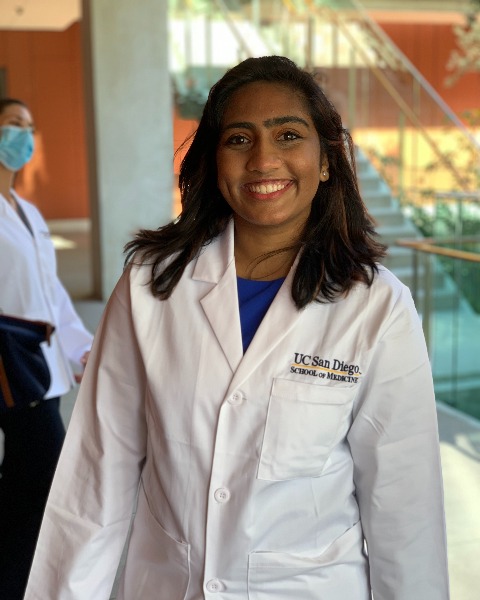Quality Improvement
59: Overcoming Barriers to Implementation of Gastric Cancer Surgical Standards Through Tumor Board Engagement: Stakeholder Input

Shivani Mehta, MD Candidate
Medical Student
UC San Diego School of Medicine
Irvine, California, United StatesDisclosure: Disclosure information not submitted.
Abstract Presenter(s)
Compliance with evidence-based treatment guidelines for gastric cancer across the U.S. is poor. The aim of this mixed-methods pilot study was to evaluate a change package to disseminate information on the staging and treatment of gastric cancer during multidisciplinary tumor boards, and to identify barriers to incorporating evidence-based guidelines into practice.
Methods:
The change package included a 10-minute video, a brief knowledge assessment, and a discussion guide. Commission on Cancer (CoC)-accredited sites were invited to participate. Participants completed the Organizational Readiness for Implementing Change (ORIC) scale (score range 12 to 60), and scales to measure the feasibility, acceptability, and appropriateness (score ranges 4 to 20). Semi-structured interviews were conducted to further define inner and outer setting barriers.
Results:
A total of 7 centers that perform gastrectomy participated. 74 total participants completed the pre-video knowledge assessment and 55 completed the post-video assessment. The recommendations found to be most controversial were: separate staging laparoscopy with washings, and modified D2 lymphadenectomy. Sum scores were calculated for acceptability (mean 17.43, SD 2.51) appropriateness (mean 16.86, SD 3.24), and feasibility (16.14, SD 3.07) of the change package. ORIC scores for change commitment and change efficacy correlated with responses to open-ended questions and are summarized in Table 1. Key barriers identified were patient volume, skills in the procedures, and attitudes and beliefs.
Conclusions: This change package was found to be moderately to highly feasible, appropriate, and acceptable at participating CoC-accredited sites. The activity itself received uniformly positive feedback and identified specific recommendations in gastric cancer care that are considered controversial. Future efforts could focus on building skills and knowledge, as well as the more difficult issue of attitudes and beliefs by gastric surgeons.
Learning Objectives:
- Understand the benefits of utilizing the multidisciplinary tumor board setting for disseminating information
- Describe institution-level barriers to implementation of current evidence-based recommendations for gastric cancer treatment
- Discuss methods of assessing an intervention such as a change package, and organizational readiness for change
